Weisbart uses responsible business practices
Bud Weisbart makes a success of applying principles of social responsibility to the business world.
By Sigrid Tornquist
“If you believe in the economic system [of free enterprise], which we do, and if you believe in your own abilities to provide value within that system, then do it—just do it,” says Bud Weisbart, IFM, vice president of AR Tech and AR Industries, divisions of A&R Tarpaulins Inc. in Fontana, Calif. The company produces engineered fabric products for technical/aerospace, architectural and industrial/commercial products—and provides an alternative work culture for its employees and interns.
Bud and his wife Carmen, president of A&R Tarpaulins, are wholly invested in the word “value,” which for them means far more than a healthy profit margin—although that is an essential part of the company’s equation. From operating with an open management system to instituting an ambitious health and safety program to providing a supportive expectation of excellence and innovation, the Weisbarts have created a culture for their company based on a foundation of collective strength and visionary leadership.
Making a difference
Both Bud and Carmen have a history of social responsibility. Carmen is a registered nurse and worked in hospital settings until marrying Bud in 1966. Bud served in the Peace Corps in Thailand before that time. The two of them subsequently worked for a foster parents plan program in Peru where Bud served as director and Carmen set up the medical portion of the program. After returning to the United States in 1968, the couple continued to work in social justice arenas, including those that addressed the needs of the impoverished and at-risk youth. But they began to envision an alternate way to provide opportunities to people in the community. “When we were running anti-poverty programs here in the United States we would always say that if businesses only did—fill in the blank—we wouldn’t need to be running these programs,” Bud says.
In 1978, the Weisbarts decided to apply those ideals of social responsibility in the business realm. They bought into the company that had been started by Bud’s father, Ralph, and partner, Aundra Arrington. “While involved in the various social service programs in our past careers, it became important to envision ways in which businesses in a community could be a primary resource to address the needs for advancement of people in those communities,” Bud says. “So, while we are definitely a for-profit enterprise, it has always been our goal to combine commercially viable entrepreneurship with the goals of social entrepreneurship.”
Managing innovation
Combining commercial aspirations with social responsibility resulted in creating an open management style, the basis from which Bud and Carmen run the company. The organization chart is horizontal, and is based on functions—project management, administrative support, program support and production management—rather than individuals fulfilling those functions. Every employee is assigned to one of the management teams, and representatives from these teams meet daily to plan and to review sales, profit and loss. “All major decisions are made with consideration of the opinions of our staff,” Bud says. “Our goal is that our staff be integrated so that they can work on projects, whether technical, industrial or architectural.”
That kind of synergistic approach has resulted in a number of product innovations. Recently, the company developed an architectural application for restaurant patios based on a roll-over truck system. “We incorporated our roll-over truck cover concept to put a solid cover on top of the mesh shade cover,” Bud says. “Rather than creating niches for our products and services, we try to create environments into which our abilities can take us.”
Staying the course
The Weisbarts’ open management system has resulted in a stable workforce, with employees having been with the company for more than 10 years on average, and the production managers having an average of more than 24 years. And twice a year, the company distributes 20 percent of the after-tax profits to the employees—profit-sharing and bonuses for 2008 resulted in a distribution of more than $63,000 to the company’s 45 employees.
Of those 45 employees, currently six are paid interns. For more than 25 years A&R has been hiring student interns, and employs between four and six interns at the company at any given time. In addition to other duties, the interns assist the company’s engineers and quality managers in fulfilling the requirements of ISO 9001:2000 and AS 9100 B certifications, quality standards achieved by the company. Many interns are subsequently hired on as permanent employees, and most of the rest stay between 18 months and two years. “The greatest contribution we feel we make to our community is creating an environment in which interns and staff are introduced to the values of pursuing a profession, the rewards for doing so, and the pride of working in our quality-driven manufacturing company,” Bud says.
The health and safety of A&R’s employees is also a crucial component of business operations for the Weisbarts. Carmen uses her skills and knowledge as an RN to educate staff on health and safety issues for home and work. The meetings, which are held weekly, far surpass the OSHA requirements for frequency, and cover subjects such as safe use of equipment, accident and illness prevention, and appropriate behavior.
The difficulty with an alternative company structure, Bud says, is the previous work experience employees sometimes bring with them to A&R. “Sometimes it’s challenging to make sure that our colleagues understand our philosophy and our values,” Bud says. “We depend on everyone buying into what we do and the way we do it.”










